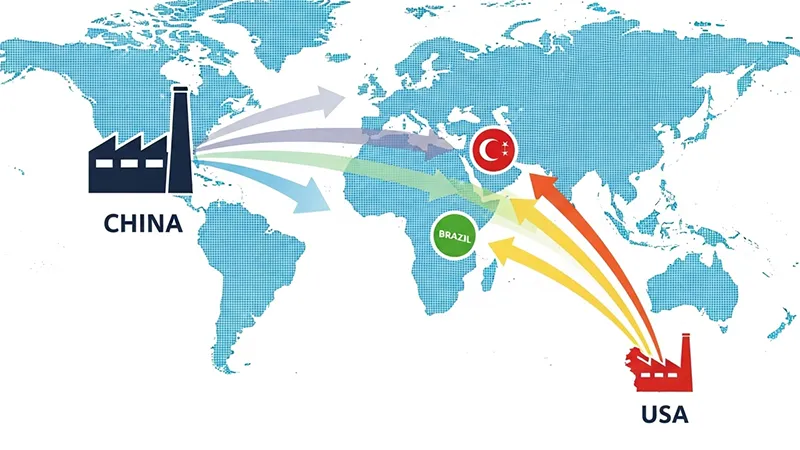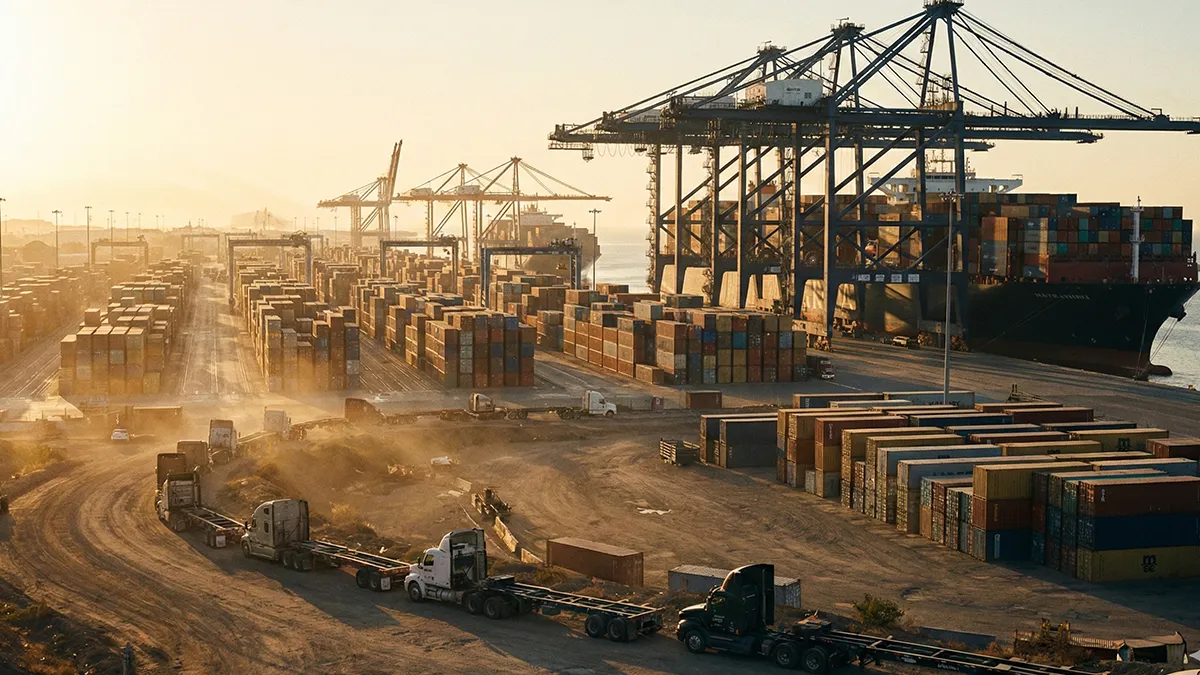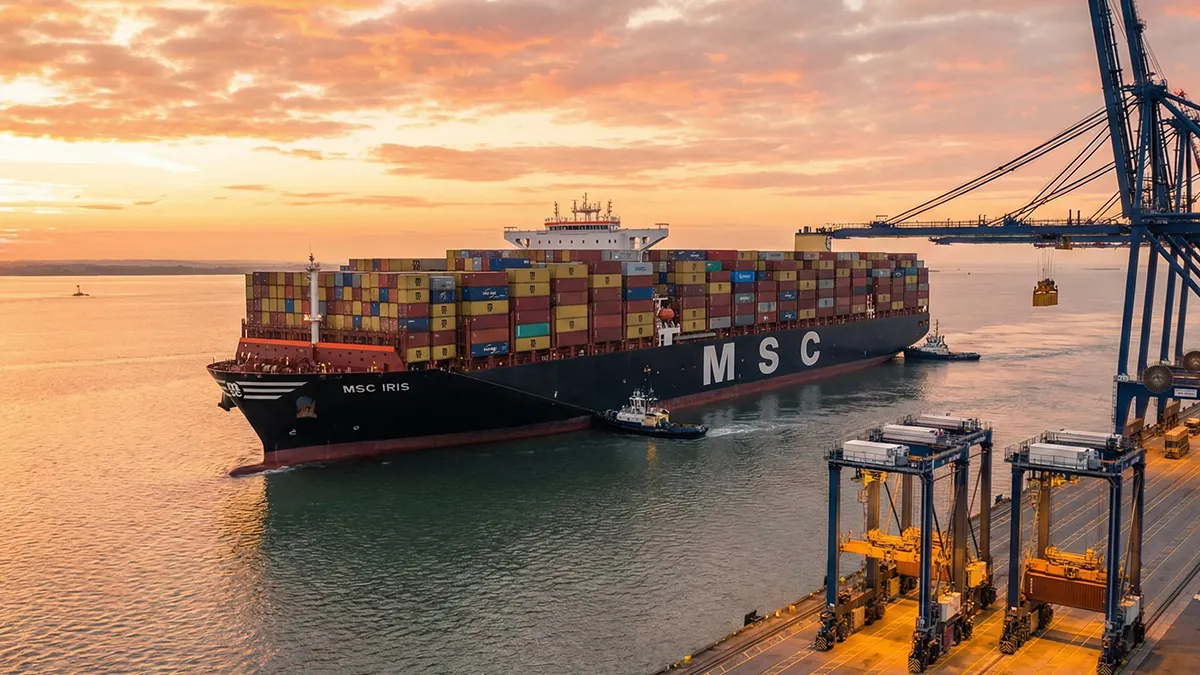Shein & Temu Raise U.S. Prices Ahead of Tariff Policy Shift
Shein and Temu, two of the most prominent low-cost e-commerce platforms, have announced upcoming price increases for products sold to U.S. consumers. According to recent media reports, both companies will implement this Temu price increase starting April 25 in response to shifts in global trade regulations and tariff policies. This SHEIN Temu price increase is a direct reaction to a major change in U.S. import law.
In their official statements, Shein and Temu used identical wording to urge American shoppers to place their orders before April 25 to lock in current prices. They also promised to ensure smooth delivery of orders during the transitional period. This news confirms the end of an era for ultra-low-cost e-commerce and highlights the significant impact of the new Temu SHEIN tariffs.
The End of "De Minimus": The Reason for the Price Hikes
This pricing adjustment comes just one week before the U.S. government eliminates the "de minimis" threshold on May 2 for all packages originating from China and Hong Kong.
Previously, the policy allowed packages valued at $800 or less to be exempt from import duties and taxes. This was the key shipping packages into the US minimum threshold SHEIN Temu relied on. It applied to over 90% of U.S. inbound packages, with Shein and Temu orders accounting for roughly 60% of that volume. The de minimis policy had played a critical role in helping these platforms scale rapidly in the U.S.
Once the de minimis threshold is removed, these Chinese goods will be subject to significantly higher import duties. For example, some categories like knitwear could face combined tariffs on SHEIN Temu packages as high as 170%, inevitably driving up retail prices and forcing a change in their business model.
How Shein and Temu are Strategically Adapting

Both companies had anticipated this regulatory shift and started preparing more than a year ago. Their preparations included expanding domestic product sourcing, introducing U.S.-based brands, and establishing manufacturing operations outside China—such as Shein's factories in Brazil and Turkey.
Temu, which originally relied on a fully integrated supply chain that shipped directly from Chinese factories to U.S. consumers, is now transitioning to a semi-managed logistics model. This shift involves greater reliance on the U.S. domestic logistics network and is a core part of the Temu china us shipping changes. Still, the majority of its core product offerings are sourced directly from China, which will now face these new tariffs.
The Impact on Pricing and Competition
Temu entered the U.S. market in September 2022, while Shein has been selling to American customers since 2017. The central concern now is whether these platforms can remain competitive without their low-price edge. With Temu showing tariff costs now being passed on to the consumer, their primary value proposition is challenged.
Early indicators suggest Temu may be scaling back its U.S. presence, including cutting advertising spending. The upcoming price hikes and tariff adjustments mark the end of an era for ultra-low-cost e-commerce in the U.S. Shein and Temu now face challenges that go beyond pricing pressure, potentially accelerating their shift toward localizing operations.
What This Means for Your E-commerce Business
The end of the de minimis era for China-based shipments signals a maturation of the cross-border e-commerce market. The era of tariff-free, direct-to-consumer shipping is being replaced by a more regulated environment that favors formal importation processes.
For other e-commerce businesses, this is a moment to reinforce the value of a robust and compliant supply chain. This is where a professional logistics partner becomes essential. Our end-to-end, one-stop logistics solutions are built for this new reality. We manage the formal import process, including:
-
Formal Customs Clearance: Our in-house customs brokerage handles all the complexities of tariff calculation and payment.
-
Freight Management: We consolidate goods and manage formal air and sea freight, providing a more reliable and scalable alternative to the small parcel model.
-
Strategic Guidance: We provide the expertise to help you navigate exactly these types of regulatory changes, ensuring your business is always compliant.
Frequently Asked Questions (FAQ)
-
1. Why are Shein and Temu raising their prices in the U.S.?
-
The SHEIN Temu price increase is a direct response to the U.S. government ending the "de minimis" rule, which allowed them to import packages under $800 without paying any duties or taxes.
-
-
2. What is the "de minimis" rule?
-
The de minimis rule is a customs threshold that exempts low-value shipments from import duties and taxes. The U.S. is removing this exemption for goods from China and Hong Kong.
-
-
3. Will there be new restrictions on Shein shipping?
-
The primary change is not a restriction on shipping itself, but the application of tariffs and duties that were previously waived. This makes the restrictions on SHEIN shipping financial rather than logistical for the consumer.
-
This section is designed for FAQPage Schema.
Navigating the New Tariff Landscape
The changes impacting Shein and Temu are a clear signal that the regulatory environment for global e-commerce is tightening. For businesses that rely on international sourcing, staying informed and partnering with a compliance-focused logistics expert is no longer just a best practice—it's essential for survival.
Our team is dedicated to helping you navigate this evolving landscape. We build resilient supply chains that are prepared for the regulatory challenges of tomorrow.
[Get a Free Logistics Consultation Today]


